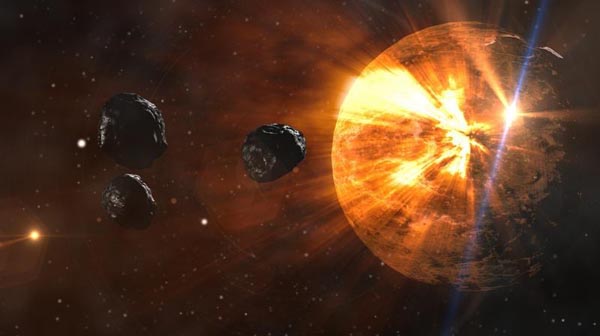
Some people have said that the “end is near” for Earth if the 30-metre long TX 68 asteroid collides with the Earth.
This week is proving out to be an exhilarating one for stargazers as planet Earth is all set to witness another total solar eclipse and an asteroid fly-by between March 8 and 9. However, some conspiracy theorists have predicted that these bizarre events are clear signs of an imminent “Doomsday”.
As millions of people across the globe wait eagerly to witness the sheer brilliance of these two ‘cosmic’ events, a set of prophesiers have already blemished the events by predicting an impending doomsday.
Several videos have been uploaded on Youtube, where prophesiers can be seen explaining the terrible consequences of these cosmic events on Earth. Some people have said that the “end is near” as there is going to be massive destruction if the 30-metre long TX 68 asteroid hits the Earth instead of skimming past it.
According to a Youtube channel owner Linon Anderson, Doomsday preachers have said that both the events are a sign of worldwide destruction. He believes that the asteroid is going to fly past the planet, and “people make up these rumours every year.” However, he further suggested that the Asteroid could still damage all forms of communications or affect the Earth’s magnetic field.
Another Youtube video demonstrated what would happen if the asteroid actually collides with the Earth.
NASA shrugs off doomsday rumours
However, NASA has rubbished all doomsday rumours and clearly pointed out that the asteroid, which was supposed to skim past earth on March 5, will pass by around 3 million miles from Earth.
The US space administration’s Center for Near-Earth Object Studies (CNEOS) had earlier confirmed that the “asteroid poses no threat to Earth”.
“We already knew this asteroid, 2013 TX68, would safely fly past Earth in early March, but this additional data allow us to get a better handle on its orbital path,” said Paul Chodas, manager of CNEOS. “The data indicate that this small asteroid will probably pass much farther away from Earth than previously thought.”
“There is no concern whatsoever regarding this asteroid—unless you were interested in seeing it with a telescope,” he added.


